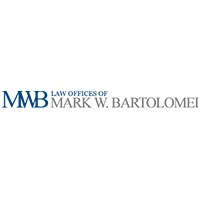 Worcester County, MA Reorganization Lawyers
Worcester County, MA Reorganization Lawyers
Sponsored Law Firm
-
 x
x

Click For More Info:
-
Botelho Law Group
901 Eastern Ave Suite 2 Fall River, MA 02723» view mapBankruptcy & Debt Law Fall River Lawyers
At the Botelho Law Group we have several attorneys, with different specializations; to help your case’s individual needs.
800-229-5331
Not enough matches for Worcester Reorganization lawyer.
Below are all Worcester lawyers.
Sponsored Lawyers
1-10 of 79 matches
Accident & Injury, Medical Malpractice, Wrongful Death, Products Liability, Animal Bite
Attorney John T. Zogby is a graduate of Boston College and New England School of Law in Boston, MA. A lifelong resident of the greater Boston area, he was admitted to the Massachusetts bar in 1992. After working for a Boston insurance defense firm, Attorney Zogby moved his practice to Milford, MA where he now leverages his knowledge and insights of the defense side of litigation in his advocacy for his plaintiff clients. At the Law Office of John T. Zogby, we understand that each client and the circumstances of each case are unique. Your case will be handled with the dedicated attention it deserves. We recognize that most clients do not have in-depth knowledge of the legal process and thus we work diligently to keep clients informed every step of the way. Personal injury cases are handled on a contingency basis, which means the client only pays when the case is resolved.
(more)Bankruptcy & Debt, Divorce & Family Law, Criminal
Marina R. Matuzek is a practicing lawyer in the state of MA handling Bankruptcy and Family Law cases.
(more)Divorce & Family Law, Real Estate, Criminal, Bankruptcy & Debt, Mediation
As the founder of the Law Offices of Mark W. Bartolomei, Mr. Bartolomei is a highly skilled and dedicated attorney focused on providing outstanding legal counsel and results-oriented service. He has more than 20 years of experience in several different areas of the law, and handles cases for a diverse set of individuals and families in the Worcester area. You can have faith in the firm and its strong track record of success, whether your legal needs are related to divorce, criminal defense, bankruptcy or real estate. A strong commitment to our clients and the community With roots in this community that go back to his childhood, Mr. Bartolomei knows the challenges that people in the Worcester area face. He has an obvious passion for helping those facing a variety of legal issues, based on his belief that everyone should be able to afford reliable counsel. Mr. Bartolomei received his B.A. from Assumption College in Worcester before attending Western New England College of Law in Springfield. Since his entry into the Massachusetts State Bar, he has remained dedicated to helping people protect their rights in cases involving family law and various other issues.
(more)Accident & Injury, Criminal, Motor Vehicle, DUI-DWI
Attorney Patria gives his personal attention and commitment to every client from start to finish. Initial consultations for personal injury and criminal defense matters are always free of charge. All personal injury cases are accepted on a contingency fee basis; the attorney only gets paid when you get paid. If no recovery occurs, you owe nothing. Fee agreements for criminal cases are reasonably priced such that clients pay only for the services they receive and never for anticipated services that are avoided. As with all such engagements, a copy is always provided to the client. Attorney Patria has been obtaining proven results for nearly 30 years. He has recovered millions of dollars in compensation for his injured clients and has overseen and successfully managed thousands of favorable outcomes for individuals facing serious criminal charges of all types. The law office of Kris Patria has locations in Acton and Fitchburg. Please contact the law office of Attorney Patria at your convenience to discuss your case.
(more)


 Joseph Botelho Fall River, MA
Joseph Botelho Fall River, MA




